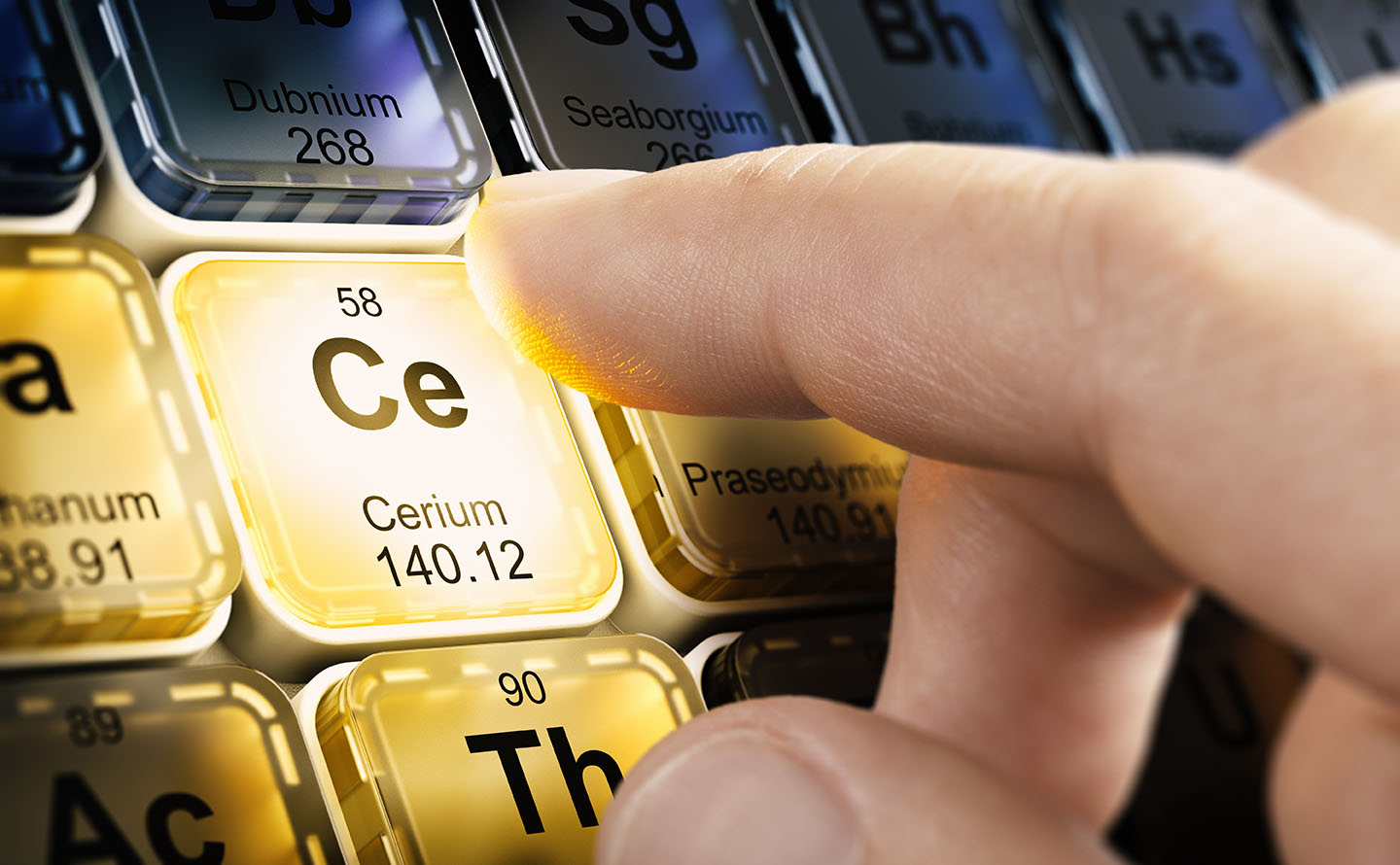

Cerium is a chemical element with the symbol Ce and atomic number 58. It is a soft, silvery-white metal that is found in the earth's crust.
Cerium is the most abundant of the rare-earth elements, and it has a number of unique properties. For example, cerium is a good conductor of electricity and heat, and it is also a powerful magnet.
Cerium is used in a variety of products, including lighter flints, spark plugs, and polishing compounds.
Cerium is also used in lasers, magnets, and catalysts.
Cerium is an important element in the development of new technologies. For example, cerium is used in the production of powerful magnets that are used in hybrid cars and wind turbines. Cerium is also used in the production of lasers that are used in surgery and other medical applications.
The word "cerium" was first used in 1803 by Martin Heinrich Klaproth, who named it after the asteroid Ceres.

Noun.
Singular: cerium.
Plural: ceriums (not commonly used).
Adjective.
Cereous: relating to cerium.
The word "cerium" comes from the Latin word "ceres", which means "goddess of agriculture". The name was chosen by Martin Heinrich Klaproth, who discovered cerium in 1803, because the asteroid Ceres was discovered in 1801.
Where can cerium be found?
Question:
What is "cerium," and what are some of its significant applications in various industries?
Answer:
Cerium is a chemical element with the symbol "Ce" and atomic number 58, belonging to the lanthanide series.
Applications of Cerium:
Catalysis: Cerium compounds are used as catalysts in various industrial processes, such as automotive exhaust converters. They help in reducing harmful emissions by facilitating chemical reactions that convert pollutants into less harmful substances.
Polishing and Abrasives: Cerium oxide is commonly used as a polishing agent for glass, mirrors, and precision optics. It provides a smooth and scratch-free surface finish, making it valuable in optical manufacturing and lens polishing.
Alloys and Magnets: Cerium is added to certain alloys to enhance their properties, such as heat resistance and mechanical strength. It is also used in the production of certain types of magnets.
Glass and Ceramics: Cerium compounds are employed in the glass and ceramic industries to impart desirable properties, such as colour changes, UV absorption, and thermal stability.
Cerium's unique properties make it a versatile element with widespread applications in various industries, contributing to technological advancements and enhancing numerous products and processes.
Address
Developing Experts Limited
Exchange Street Buildings
35-37 Exchange Street
Norwich
NR2 1DP
UK
Phone
01603 273515
Email
hello@developingexperts.com
Copyright 2025 Developing Experts, All rights reserved.